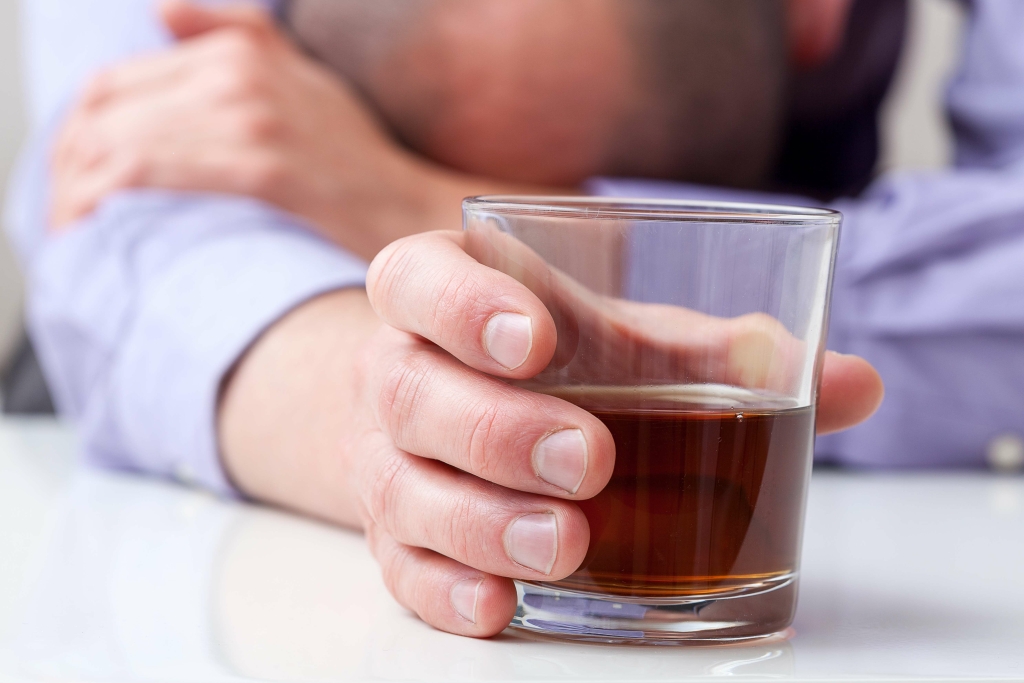Dissociating From Traumatic Experiences May Raise the Risk for Alcohol-Related Problems
Data da publicação: 8 de dezembro de 2020 Categoria: Sober livingGiven similar low rates of alcohol-related problems and PTSD severity (Bonumwezi et al., 2022), symptom severity may be a potential moderator of the associations between PTSD and alcohol-related problems. In Patel et al. (2021), dissociative symptoms fully mediated the relation between PTSD and alcohol-related problems in this inpatient sample undergoing treatment for PTSD and trauma-related disorders. Further research is needed in PSP samples presenting with high acuity of PTSD and dissociative symptoms to elucidate whether this pattern remains among more functionally impaired PSP.
The predictive role of emotion dysregulation
While PTSD does not result solely from trauma experienced with military duty, PTSD and alcohol abuse in veterans are occurring at higher rates than in the general population. Seeking treatment for a substance use disorder and PTSD have increased at least 300 percent in recent years. Drinking alcohol, especially to excess, is likely to have similar effects on mood. Someone who experiences changes in mood or depressed feelings when drinking alcohol in addition to PTSD symptoms may be more likely to continue to drink excessively. Alcohol is capable of altering the brain in a number ptsd and alcohol abuse of ways, including reducing the activity of certain neurotransmitters. This can cause a range of physical and psychological effects, such as reduced impulse control and increased risk-taking.
- For instance, later research found that people who experience higher levels of dissociation engage in more frequent substance use than people with lower levels of dissociation, even if both groups experienced similar levels of trauma.
- This implies that using alcohol or drugs is a form of self-medication among traumatized people.
- Treatment providers are available 24/7 to answer your questions about rehab, whether it’s for you or a loved one.
- Consistent with prior literature (Dworkin et al., 2018; McGlinchey et al., 2021; Patel et al., 2021; Walton et al., 2018), a secondary exploratory objective was to examine the mediating role of dissociation between specific PTSD symptom clusters and alcohol‐related problems.
2.6. Depression, anxiety, and stress
Finally, age and sex were inserted as covariates predicting the two outcomes (i.e., PTSD and alcohol use disorder). This study confirmed the existing research regarding the role of trauma in addiction behavior.15,47,48 Alcohol dependency can be considered a dissociative reaction of individuals with difficulties in identifying, expressing, and regulating emotions. This triad’s relevance for the prevention and treatment of alcohol dependence requires attention in future studies. The current results suggest that addictive behaviors have a dissociative nature that allows individuals to manage negative and unregulated emotions.
PTSD severity
But if you or someone you know has PTSD, an alcohol usage disorder or both, it’s important to get support. Start by creating a list of your “whys.” Why do you want to change your relationship with alcohol? It’s a good practice to keep this list at the back of a notebook, allowing you to add to it over time. Initially, your “whys” might be rooted in the negative aspects of drinking – feeling low, disliking your behaviour when you drink, or financial concerns.
Childhood trauma can increase the risk of developing alcohol use disorder (AUD) in adulthood. It often results from sustained exposure to trauma, such as childhood abuse or violence. This distinguishes it from the traditional diagnosis of PTSD, which can result from a single, time-limited traumatic event. Our state-specific resource guides offer a comprehensive overview of drug and alcohol addiction treatment options available in your area. Francisco Church is a rehabilitation specialist and the chief editor of Recovery Ranger.
The Recovery Team – Delray Beach

In addition, it is common for the PCL-5 to be used with connection to a Criterion A traumatic event during the pandemic (di Tella et al., 2020; Song et al., 2020). Third, due to a lack of Criterion A event assessment, the PTSD symptoms cannot be competely disentangled from burnout symptoms experienced by HCWs and PSP during the pandemic. However, while PTSD and burnout may have similar symptomatology, there are distinct differences in presentation profiles for PTSD and burnout (Restauri & Sheridan, 2020; Tomaszek & Muchacka-Cymerman, 2022). Fourth, data was cross-sectional during a portion of the pandemic, so comparing these results to pre-pandemic results should be done with caution.

Specifically, the model has been tested using the maximum likelihood estimation method and the goodness of fit was evaluated using several fit indexes namely the comparative fit index (CFI) and the root mean square error of approximation (RMSEA) 73,74. Acceptable fit was considered when the indexes were equal or superior to 0.90 and inferior or equal to 0.08 for CFI and RMSEA respectively. In addition, in case of poor fit, modification indexes of the software were used in order to better specify the model adding the estimation of the correlation of some residuals 75,76. Dissociative symptoms are also strongly linked to higher rates of revictimization, including sexual assault and intimate partner violence.26 Several researchers have investigated the pathway through which dissociation predicts revictimization. Many people have incorrectly attributed dissociative identity disorder to substance use.
The majority of the literature https://shiawaseglobal.com/how-does-alcohol-cause-cardiovascular-disease/ examining PTSD and alcohol/substance use among HCWs and PSP during the SARS-CoV-2 pandemic has focused on prevalence rates and frequency of use. Rates of probable PTSD seen in the current study (25–26%) are similar to rates previously published during the pandemic (Mehta et al., 2022; Saragih et al., 2021). In addition, alcohol- and substance use-related problems among our sample appear consistent with literature where relative increases in alcohol use and related problems are reported during the pandemic (Mongeau-Pérusse et al., 2021; Turna et al., 2022; Young et al., 2021). No literature, to our knowledge, has examined how the symptoms of PTSD or SUD impact one another among HCWs and PSP during the pandemic.
This heightened risk underscores the critical importance of addressing both conditions simultaneously and providing comprehensive support to affected individuals. Alcohol-dependent participants were recruited from NHS outpatient clinics for substance abuse treatment in a region of Southern Italy. A plain language statement was attached to the front of the questionnaires to explain the nature of the study. Participants were asked to be as honest and spontaneous as possible in their responses and were assured of anonymity and confidentiality. Participants returned their completed questionnaires to health professionals at the outpatient clinics or to a university office in a sealed envelope supplied by the researcher. All participants provided informed consent and were given the opportunity to withdraw from the study at any time.
Understanding the Relationship Between PTSD and Alcohol Use
The researchers recommend further examination of dissociation’s role over time, including comparing its influence during and in the aftermath of trauma. To our knowledge, this is the first study examining associations between PTSD severity and alcohol/substance use-related problems via mediating impacts of emotion dysregulation and dissociation among HCWs and PSP during the SARS-CoV-2 pandemic. If you’re struggling with derealization, depersonalization, Sobriety or alcohol use, you don’t have to face it alone. At Asana Recovery, we provide compassionate, evidence-based treatment to help you regain control over your mental health and well-being.
By retraining your brain to embrace positive actions during these times, you pave the way for healthier habits. Embarking on a journey to cut down or go alcohol-free is a significant step towards a healthier, happier life. To help you along this empowering path, it’s essential to get clear on your reasons for making this positive decision. Understanding that problematic drinking exists along a broad spectrum can empower people to seek help proactively. Positive change comes in various forms, from seeking therapy to explore healthier coping mechanisms to finding support within peer networks and educational resources.

